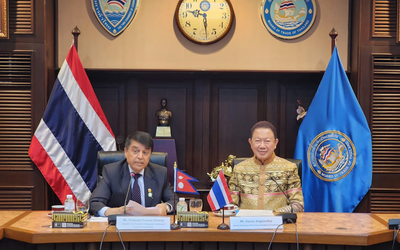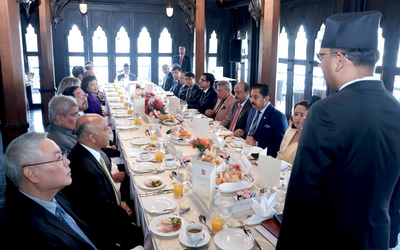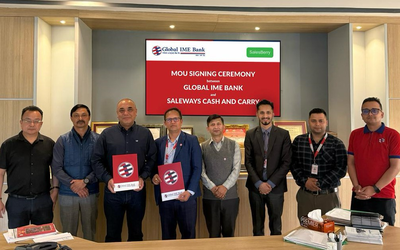More on Economy




It needs to be underlined, at the very beginning, that just having attractive foreign investment policies, priorities and strategies will not attract offshore investment as pre-conditions must be satisfied by all countries.
Just examine the Transparency International's (TI) corruption index for South Asia and there you have an illustration of one precondition. Also, we could look into the economic freedom index developed by the Heritage Foundation and there we have another precondition to meet.
In other words, mobilizing foreign investments, and for that matter domestic investments, necessitates the state creating an 'enabling environment'. This is more vital than paying attention to any other policy parameter. Without a climate of minimal uncertainties, businesses can hardly take calculated risks and make sound investment decisions. Least of all, make decisions that garner long-term profitable prospects. And long term decisions is the name of the sustainable development game. FDI will, naturally,be deterred by a climate of political graft and systemic corruption.
Political stability is an absolute must. But Parties are divided ---not really by ideology but, by the erroneous perception that that is the 'right' thing to do as members of the opposition bench. Furthermore, they resort to the politics of violent protests to attain from outside parliament what they fail to achieve from inside. The rule of law is severely compromised.
Administrative stability is also necessary because in a regime of political instability, where democratic institutions function with little respect for the rule of law, or account for their performance habitually by taking decision in a transparent manner, the civil service-- as a wing of the executive arm of government-- can and do compensate for the lack of political stability-- provided there is proper checks and balances between the executive, legislative, and judicial authorities.
Administrative stability is felt to exist when due recourse to administrative tribunals and courts can be had as quickly and as cost-effectively as possible to redress grievances and remove constraints beyond the business' control. Or, indeed, to obtain justice from acts of illegalities by the state. Administrative stability exists when policy regimes are stable despite changes in bureaucratic personnel.
Macro-economic stability in respect of variables such price level stability, foreign exchange rate stability, and budgetary-deficit stability are well understood. Other stability factors are the degree of harmonization of FDI policies with overall development goals, coordination with short-term and mid-term fiscal, monetary, foreign exchange policies.
The above precondition analysis on enabling environment assumes that where such parameters are not in order then: (a) incentives need to be excessively liberal and therefore socially costly, or (b) regional countries compete unnecessarily with each other providing tax concessions to attract FDI and thereby weakening themselves jointly and severally to regulate TNCs, or (c) incentives attract the wrong kinds of FDI that are not given to long-term profits and corporate social responsibility or (d) all of the above scenario.
Foreground: The Necessary Economic Conditions
Embracing economic globalization through a process of liberalization, privatization and accession to WTO seems to be a vitally necessary condition for attracting FDI.
Liberalization involves not just reduction of tariffs, removal of the permits and quota raj, promulgation of laws to safeguard competition for ease of entry, exit and expansion of businesses, promoting institutions to regulate monopolies and protect consumer sovereignty but, indeed, also taking radical measures to reform the financial and banking sectors to rid the economic system from the unhealthy links between the political, business and banking sectors. Liberalization also requires radical changes to the labour laws that restrict effective operation of the labour market—eradicating the ‘labour aristocracy’ is crucial.
While Nepal has liberalized by getting rid of monopolies in civil aviation and hydropower generation, it is not complete yet. In telecommunication, monopoly exists completely with only mobile phone service being opened to duopolistic competition. Privatization of civil aviation and telecommunication sectors is yet not initiated in earnest.
Additionally, exit for business is still not convenient in the absence of more liberal labour laws allowing for ease of labour retrenchment as well the enactment of a bankruptcy law to avoid litigation and allow businesses to exit easily. It is of paramount importance that we have a new comprehensive Industrial Relations Act 2069 to usher in the new Nepal with rapid industrialization.
The other necessary condition is the achievement of moderate economic growth of around 4-6% per annum on a sustained basis. Coupled with a pro-poor social environment:gauged by the extent or lack of food security, universal primary education, basic primary health and sanitation, and provision of vocational and technical educational opportunities, including apprenticeship and entrepreneurship development programmes. It is sub mitted that these programmes will usher in inclusive development for the Dalit community with their rich traditional heritage.
Finally, in the unfolding era of globalization in the 21st century economic diplomacy must be made the centrepiece of Nepal’s strategic foreign policy, which yet remains despite the Nepal’s concept and approach has been well studied and articulated at the policy level. The lack of economic thinking amidst all the political parties in the root cause for its non execution. So too the unhealthy dependence on foreign aid to develop the development agenda for Nepal based on borrowed exogenous models from outside rather than fostering national and local leadership to create and innovate endogenous models in tune with their local culture, capacity and resources.
As Professor Ryokichi Hirono said so eloquently at a recent BOI-Japan Embassy Symposium on FDI, it is Nepal’s human resources, especially its youth, who are the sustainable development strength of Nepal.
The People are the objects and subjects for sustainable inclusive development. Their diverse social and human capital must be nurtured and developed, through with integrated manpower and educational planning, done in full partnership with the private sector. So that they can dream for each individual can dream for himself or herself and be creative and innovative to realize their God given talents. The real drivers of competitive, inclusive and sustainable development of Nepal, is a development strategy framed wholly by Nepalese planners and thin tanks that garners its own Nepali culture as a unique contribution to the globalization process in the 21st century.
Rana is a professor, South Asian Institute of Management and Former Finance Minister



